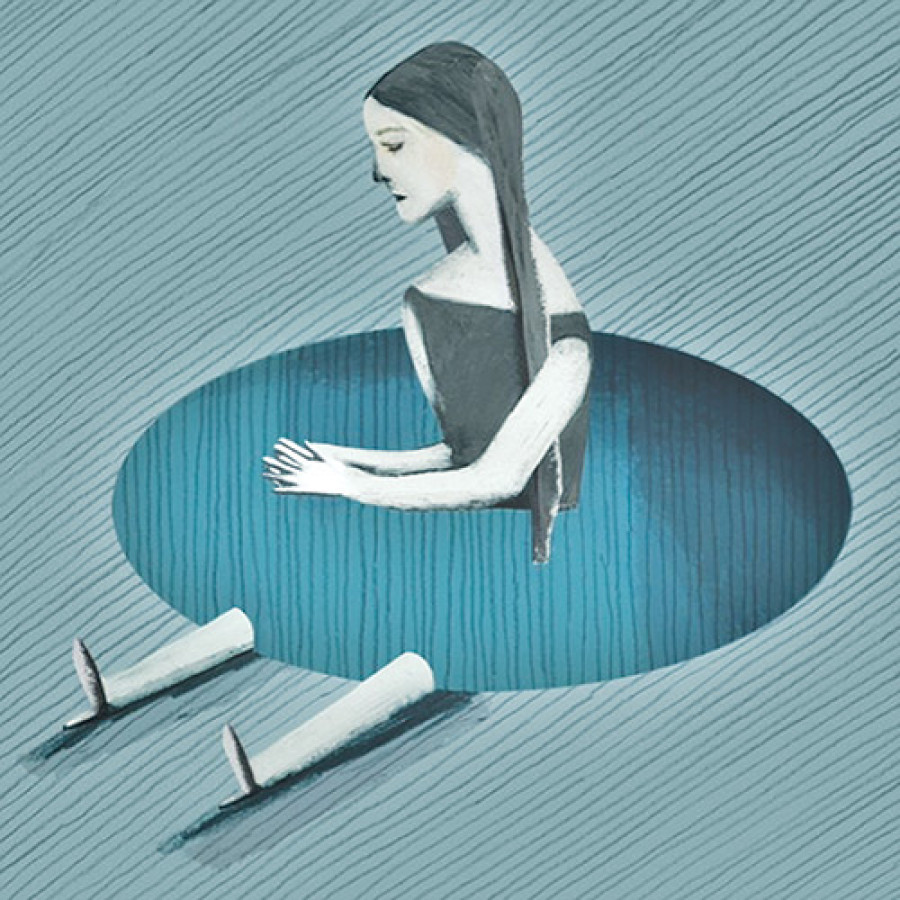Opinion
End the stigma
Women migrants, like their male counterparts, send remittance, and eventually bring new skills back home. Don’t they deserve respect?
Roni Pradhan Dhaubhadel
In Dang district, a person said about her neighbour, “The woman had a successful foreign employment spell, but I can guarantee that she had been abused during foreign it even if she does not show it”. Similarly, another person added, “My neighbour went to Kuwait as a domestic worker, she came back empty handed. She must have had miserable experiences in Kuwait”. Whether women migrants have successful or unsuccessful spells abroad, they face social stigma back home. They are often seen as victims of trafficking and several forms of exploitation. In addition, they are blamed for disrupting the social fabric by leaving behind kids and elderly parents. Such social perceptions have to be challenged and changed. It is a hindrance to women empowerment and the reintegration process, as it stops women from living a dignified life. On the other hand, a large number of male migrants are cheated and exploited every day—but their out-migration is perceived as a matter of pride, respect and social prestige.
Skewed perceptions
Why do these differences prevail between men and women migrants? Issues of the safety of women stand everywhere, whether inside or outside Nepal. Women migrants’ contribution is hardly valued and respected. A study on the Mental Health of Women Migrant Workers carried out by Pourakhi and Safer Migration Project (SaMi)/HELVETAS Swiss Intercooperation Nepal in 2016 reveals that out of the total 151 female returnees interviewed, 112 shared that they had no experience of abuses and 39 of them said that they were abused in various ways. The societal perception towards women migrants is that all returnee women face violence—which is very much in contrast to the data.
For women, in the present context, working abroad is considered as one promising solution to a majority of the problems they face. Various forms of violence, hardship, and the lack of opportunities within the country, and the desire for a better future leads numerous women to decide on leaving small children, elderly parents and loved ones at home to face challenges abroad. This decision is not an easy one to make; yet is a necessary choice for many. Despite hardships, these out-migrants have managed to send remittances back home. A returnee woman migrant in a shelter home in Kathmandu shared: “I had to work 16 hours a day without proper rest but I have managed to send my children to boarding schools in Nepal from my earnings”. Women are known as good savers, and their money is spent on education, health and families. It is the support migrant workers contribute to their family’s education, health and economic status that, directly or indirectly, lead towards poverty reduction and the fulfilment of sustainable development goals. They are important stakeholders contributing socially as well as economically.
Return with confidence and skill
In recent years, I have met many women who returned back home with increased confidence, skills and ideas. It was amazing to listen to a returnee woman, who had never gotten an opportunity to attend school, speaking simple and comprehendible English that she learned during four years of work in Lebanon. Similarly, another female returnee shared, “I can cook a variety of Arabic food. I can operate washing machines and vacuum cleaners, which I had never done before my departure to Kuwait”. An origin country like Nepal benefits from the skills and knowledge returnees bring after working abroad. And despite all the struggles they face within and outside Nepal, migrants are able to spread the message that Nepalis are hard-working and honest. So, the question arises: Do these migrant returnees deserve our respect, or more social stigma?
Nepal has ratified the Convention on Elimination of all Forms of Discrimination against Women (CEDAW). General Recommendation 26 of CEDAW insists that migrant women, like all women, should not be discriminated against in any sphere of their life. In addition, goal five of the Sustainable Development Goals (SDGs), set by the United Nations, is about achieving gender equality and empowering all women and girls. International Convention on the Protection of the Rights of all Migrant Workers and Members of their Families, 1990 asserts human rights of all migrants. ILO convention 189 especially affirms rights of women domestic workers. The Constitution of Nepal 2015 prohibits physical, mental, sexual, psychological or other form of violence or exploitation on any grounds.
Despite all these international and national instruments, women continue to bear the brunt of social stigma. Generalisation of few negative cases on returnee women has to be stopped. In-depth studies are required to share the findings of women migrants’ contribution. In spite of limitations in mobility, education, skills, language and exposure, women migrants are contributing to their families, country of origin and country of destination. They are not victims, but they are brave souls who deserve love and respect.
Dhaubhadel is a Senior Program Officer at Safer Migration Project (SaMi)/HELVETAS Swiss Intercooperation Nepal




 15.12°C Kathmandu
15.12°C Kathmandu










